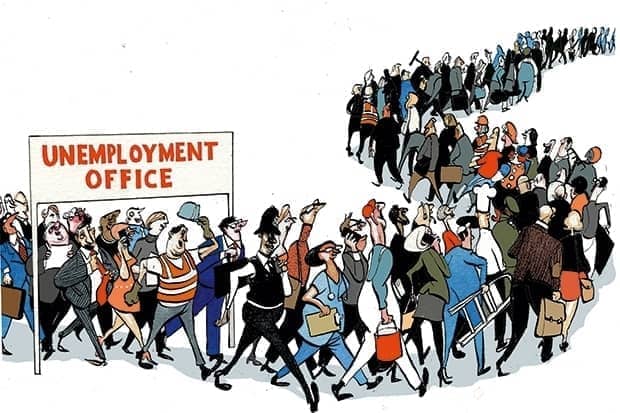The world of coronomics continues to surprise us. Last summer forecasters warned of a wave of redundancies after the biggest economic crash in 300 years. Peak unemployment — spurred on by lockdowns — was expected to near 12 per cent, ushering in a new era of chronic financial pain and instability for millions of workers. But the Treasury’s furlough scheme has kept the headline figure down. Unemployment has hovered around 5 per cent, less than half the original prediction.
The problem this summer isn’t mass unemployment but worker absenteeism. Job vacancies are now more than a third above pre-pandemic levels. There is no shortage of available work, only a shortage of those willing to do it. At the last count, 2.4 million people were still being paid by government to sit at home. In addition it’s estimated that more than a million non-British workers emigrated during the pandemic, many of whom won’t find their way back due to tougher immigration rules for EU migrants. This combination of furlough policy and Brexit restrictions has created a set of circumstances no one expected at the start of the crisis: workers, including those in low-paid sectors, seem to have the upper hand.
Companies are finding it hard to get interviewees through their doors. Of those that attempted to hire new staff in the spring, 70 per cent said they struggled, according to the British Chambers of Commerce. So they have to offer more. As a result, wages are up 7.3 per cent on the year. It’s a loaded figure which partly reflects young people on low pay losing their jobs, skewing the average upwards. But for many, wages are indeed increasing. These aren’t just salary boosts for the high-paid who have been working from their four-bedroom homes on Zoom. Figures from recruitment website Indeed Flex found that in areas including Greater Manchester and Yorkshire, average wages for temporary hospitality workers are up by more than 10 per cent compared with 2019.








Comments
Join the debate for just £1 a month
Be part of the conversation with other Spectator readers by getting your first three months for £3.
UNLOCK ACCESS Just £1 a monthAlready a subscriber? Log in